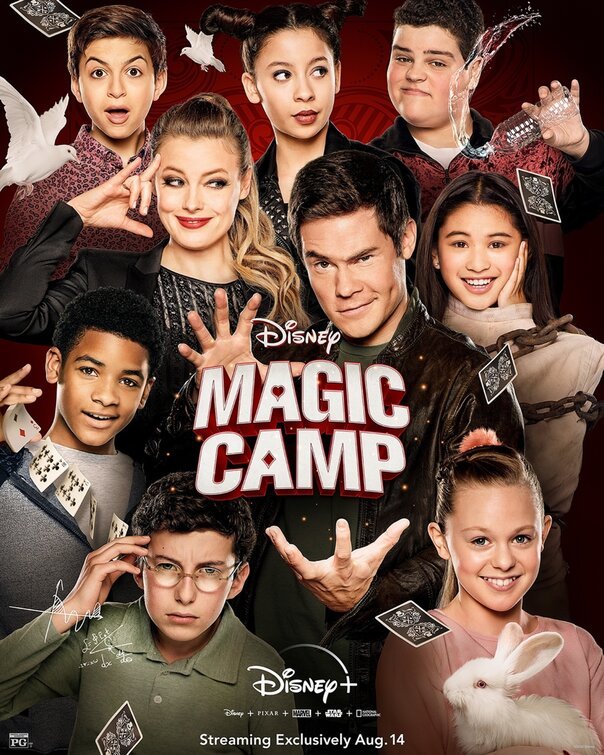All About HILLBILLY ELEGY, Based on JD Vance’s Book
By Movieguide® Staff
Note: The following is a portion of our review of HILLBILLY ELEGY. For the full review, click here.
HILLBILLY ELEGY is a Netflix drama about a dysfunctional Appalachian family in Southern Ohio in the 1990s and early 2000s that constantly struggles to overcome challenging life circumstances and do better. Based on a bestselling memoir by a lawyer, HILLBILLY ELEGY has a strong moral worldview with some poignant Christian moments, but it contains frequent strong foul language and depictions and references to drug abuse and multiple boyfriends and marriages, so MOVIEGUIDE® advises “extreme caution.”
The movie starts with the voice of a pastor on the radio and several establishing shots of the Appalachian area of Kentucky. Cut to a young boy named J.D., born in 1984, who’s playing with his friends at a local creek and saving a turtle from harm’s way. J.D. gathers with his family shortly afterward for a photo, a tradition that spans generations since his family settled in the area long ago. J.D. and his mother, Bev, sister, Lindsay, and grandparents, whom he calls Mamaw and Pawpaw return to Middletown, Ohio, about halfway between Cincinnati and Dayton, where they all currently live.
The movie makes sure to clue viewers in to the family’s situation. Apparently, J.D.’s grandmother, Mamaw, got pregnant when she was 13-years-old, and J.D.’s mother got pregnant when she was 18. His immediate family settled in Ohio to strive for a better life away from their distant relatives, who still live in Kentucky. Even with their many strides to do better in life, it seems that hardship follows them.
Cut to 2011. Now grown, J.D. is studying to become a lawyer alongside his sweet girlfriend, Usha, who has no idea about his troubled childhood. When J.D.’s sister Lindsay unexpectedly calls him to inform him that their mother, Bev, is in the hospital for a heroin overdose, J.D. picks up and drives down to help navigate what to do about the problem. J.D. was planning on scoring an interview for a summer internship with a law firm that could catapult his career. Leaving so suddenly could impact his chances of being back in time to make his future plans work in his favor.
Throughout the movie, filmmakers splice together scenes from J.D.’s past to correlate with the events occurring in 2011. Back in the late 1990s, J.D.’s mom had a series of jobs and boyfriends. Once, she got fired from a hospital as a nurse for roller blading. Another time, she up and marries a random man and makes J.D. live with her and her new spouse and her new spouse’s son. Mamaw takes care of J.D. when Bev gets belligerent with rage, and Lindsay looks out for J.D. as best as she can while also putting up healthy boundaries that keep her temperamental mother at arms’ length.
The good news for viewers is that things must work out in some form or fashion since J.D. wrote a memoir about his experiences, but how? That’s the main question.
HILLBILLY ELEGY is based on a family memoir written by J.D. Vance. It’s a sobering take on life among many Appalachian people and white working class in Southern Ohio and Kentucky. Amy Adams and Glenn Close deliver phenomenal performances as the mother and grandmother. They and Gabriel Basso, who plays J.D., elicit a strong sense of empathy that will tug on the emotions of any discerning viewer. The score by Hans Zimmer and David Fleming is reminiscent of the style of music from the setting of the movie and works well with the cinematography. The makeup and costuming is also top-notch. Director/Producer Ron Howard knocks this movie out of the park in terms of quality and powerful drama.
HILLBILLY ELEGY has a strong moral worldview with overt positive references to Christianity and the New Testament. Despite their family dysfunction, the people in this movie do love one another and want each other to be the best versions of themselves. They want the younger generations, as represented by J.D. and his sister, to be successful and have a better life than the generations before them. The movie’s opening and closing sequences feature a pastor speaking on the radio and then a reading from 1 Corinthians 13:12, “For now we see only a reflection as in a mirror; then we shall see face to face. Now I know in part; then I shall know fully, even as I am fully known.” That said, HILLBILLY ELEGY contains frequent strong foul language and depictions and references to drug abuse, one of the difficult social problems affecting people in Appalachia, Southern Ohio, Kentucky, the Midwest, and the so-called Rust Belt. So, MOVIEGUIDE® advises “extreme caution” for HILLBILLY ELEGY.
The subtitle of Mr. Vance’s original book is A MEMOIR OF A FAMILY AND CULTURE IN CRISIS. Though it focuses on an Appalachian family living in Southern Ohio, it reveals a history of family poverty and low-paying physical jobs that have disappeared or gotten worse. As such, it reveals problems that affect many people in the “Rust Belt.” When the book was published in 2016, the author was praised for his insights into that broader area of America. Some commentators also thought the book showed why many people in the Rust Belt were attracted to Donald Trump’s social and economic solutions during the 2016 presidential election.
Questions or comments? Please write to us here.



 - Content:
- Content: 

